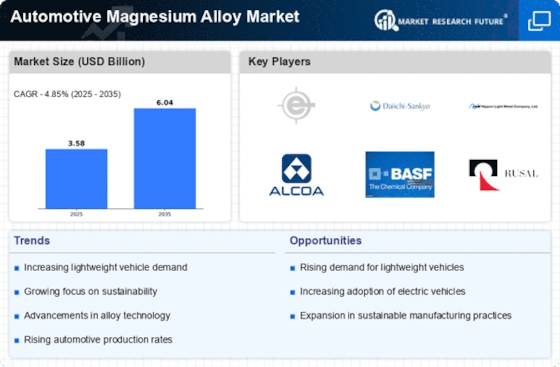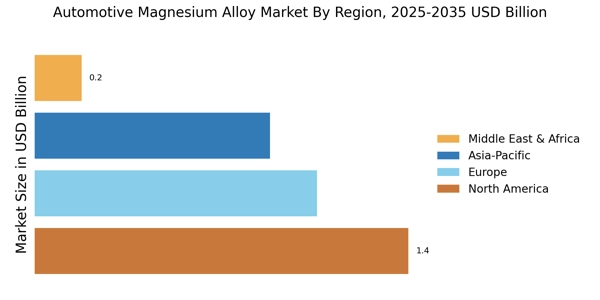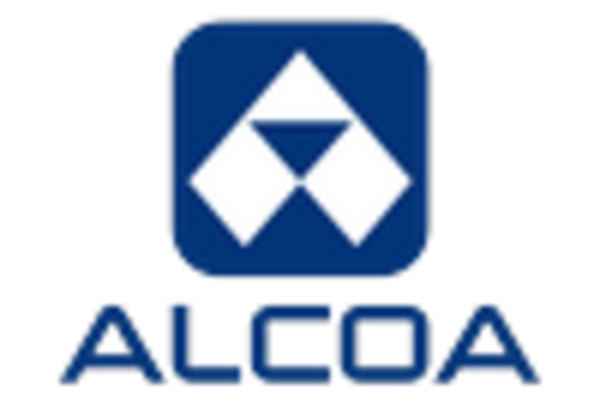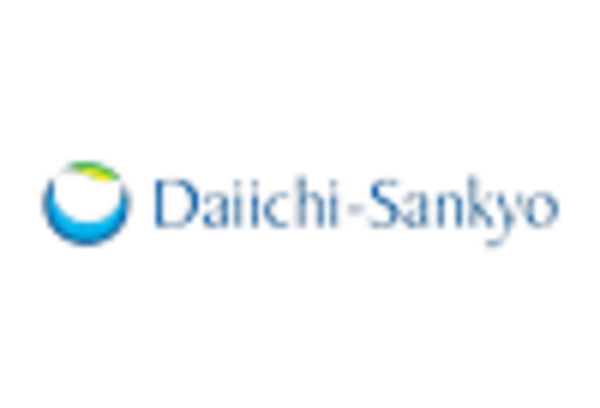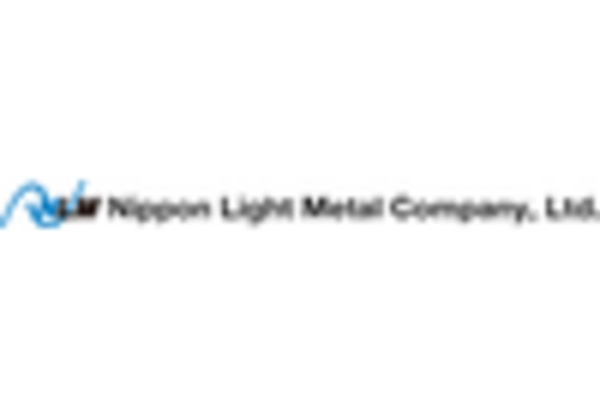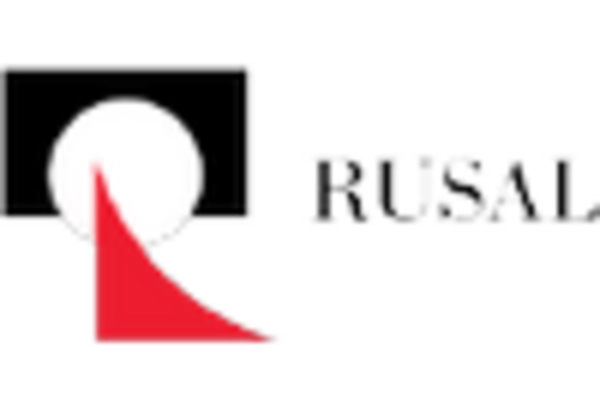Increasing Demand for Fuel Efficiency
The Automotive Magnesium Alloy Market is experiencing a notable surge in demand for fuel-efficient vehicles. As consumers become more environmentally conscious, automakers are compelled to enhance fuel economy in their offerings. Magnesium alloys, known for their lightweight properties, play a crucial role in reducing vehicle weight, thereby improving fuel efficiency. According to recent data, vehicles utilizing magnesium components can achieve up to a 25% reduction in weight compared to traditional materials. This reduction not only contributes to lower fuel consumption but also aligns with regulatory pressures aimed at reducing carbon emissions. Consequently, the automotive sector is increasingly integrating magnesium alloys into vehicle designs, driving growth in the Automotive Magnesium Alloy Market.
Rising Popularity of Electric Vehicles
The Automotive Magnesium Alloy Market is being positively impacted by the rising popularity of electric vehicles (EVs). As the automotive landscape shifts towards electrification, manufacturers are increasingly seeking lightweight materials to optimize battery efficiency and overall vehicle performance. Magnesium alloys, with their lightweight characteristics, are particularly advantageous in EV applications, where every kilogram saved can significantly enhance range and efficiency. Recent studies indicate that the integration of magnesium components in EVs can lead to a weight reduction of up to 30%. This trend not only supports the performance of electric vehicles but also drives the demand for magnesium alloys, thereby contributing to the growth of the Automotive Magnesium Alloy Market.
Regulatory Compliance and Emission Standards
The Automotive Magnesium Alloy Market is significantly influenced by stringent regulatory frameworks aimed at reducing vehicular emissions. Governments worldwide are implementing rigorous standards that necessitate the adoption of lighter materials to meet fuel efficiency targets. Magnesium alloys, with their superior strength-to-weight ratio, are emerging as a preferred choice for manufacturers striving to comply with these regulations. For instance, the European Union has set ambitious targets for CO2 emissions from new cars, prompting automakers to explore innovative materials like magnesium. This regulatory landscape not only fosters innovation but also propels the demand for magnesium alloys, thereby enhancing the growth trajectory of the Automotive Magnesium Alloy Market.
Technological Innovations in Alloy Production
The Automotive Magnesium Alloy Market is witnessing a wave of technological advancements in alloy production processes. Innovations such as improved casting techniques and advanced recycling methods are enhancing the performance and sustainability of magnesium alloys. These developments are crucial as they enable manufacturers to produce high-quality alloys that meet the rigorous demands of the automotive sector. Furthermore, the introduction of new alloy compositions is expanding the application range of magnesium in vehicles, from structural components to aesthetic elements. As a result, the Automotive Magnesium Alloy Market is poised for growth, driven by these technological innovations that enhance the material's appeal and functionality.
Consumer Preference for Advanced Safety Features
The Automotive Magnesium Alloy Market is also influenced by the growing consumer preference for advanced safety features in vehicles. As safety becomes a paramount concern for consumers, automakers are integrating more sophisticated safety systems that often require lightweight materials to maintain vehicle performance. Magnesium alloys, known for their strength and lightweight properties, are increasingly utilized in safety-critical components such as crash structures and reinforcement elements. This trend is supported by data indicating that vehicles equipped with advanced safety features can reduce the risk of injury in accidents. Consequently, the demand for magnesium alloys is expected to rise, further propelling the Automotive Magnesium Alloy Market.


